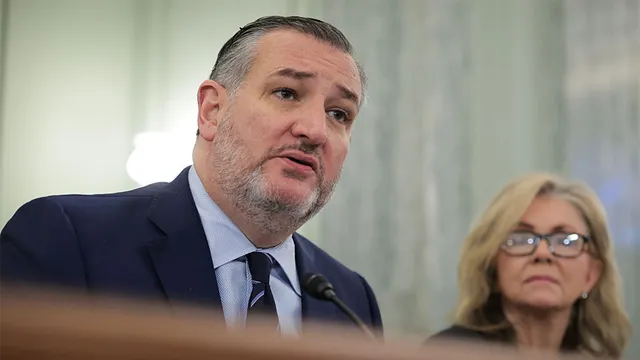
Senators withdraw agreement on states regulating artificial intelligence
2025-07-02 00:00- A recent agreement between Senators Marsha Blackburn and Ted Cruz sought to implement a ten-year ban on state-level AI regulations.
- Concerns about this provision led to its withdrawal, emphasizing the need for states to maintain the ability to protect their citizens.
- The ongoing debate reflects broader tensions between federal oversight and state rights in AI regulation.
Express your sentiment!
Insights
In recent events surrounding artificial intelligence regulation in the United States, specifically in the context of federal legislation, a significant agreement between Senators Marsha Blackburn and Ted Cruz has been withdrawn. This agreement aimed to create a ten-year moratorium preventing states from regulating artificial intelligence, a provision considered vital for maintaining consistency across the country regarding AI usage and development. The original plan included a requirement for states to abstain from implementing new regulations for access to federal funding in AI infrastructure. However, the deal faced pushback as it was perceived to limit states' rights, a concern echoed by various Republican legislators. Blackburn, in particular, argued that the existing language did not adequately protect citizens, especially children, from potential abuses of AI. She expressed her commitment to empowering states to create regulations that safeguard their residents, highlighting the need for comprehensive federal legislation like the Kids Online Safety Act to ensure adequate protection against risks posed by AI technology. This perspective aligns with broader concerns among several Republican senators and governors, who fear that an unchecked AI landscape could result in varying state regulations leading to confusion and ineffectiveness in addressing safety and fairness. Furthermore, Democrats voiced opposition to the moratorium, advocating for regulations that would effectively balance innovation and consumer safety. The fallout from the withdrawn agreement highlights the ongoing debate over federal versus state control in the emerging landscape of AI technology and regulation, ultimately raising questions about how best to govern this rapidly evolving field for the benefit of all citizens.
Contexts
The current state of AI regulations in the US reflects a complex interplay between innovation, safety, and ethics as the technology continues to advance rapidly. The United States has traditionally fostered a permissive environment for technology development, which has enabled a flourishing AI sector. However, the growing impact of AI on various sectors, including healthcare, finance, and national security, has raised concerns among policymakers regarding potential risks associated with its deployment. These risks include data privacy breaches, algorithmic bias, and the reliability of AI systems. Consequently, regulatory efforts have begun to emerge, aimed at ensuring safety while supporting innovation. Recent developments indicate a shift towards a more structured approach to AI regulation in the US. As of mid-2025, various federal agencies have begun to formulate guidelines and frameworks to govern the use of AI technologies. The Biden administration has emphasized a commitment to responsible AI, releasing an executive order that outlines principles for the development and use of AI. These principles focus on promoting public trust, ensuring accountability, and protecting civil rights, which have become pressing concerns as AI technologies integrate deeper into our daily lives and decision-making processes. Furthermore, the National Institute of Standards and Technology (NIST) has launched initiatives to develop a framework that can guide organizations in the responsible use of AI. At the state level, several jurisdictions have taken proactive steps to regulate AI. States like California and New York have introduced legislation addressing specific applications of AI, such as facial recognition and automated decision-making systems. These local regulations aim to provide a safety net for consumers and mitigate risks posed by AI technologies. Additionally, a growing number of industry stakeholders are advocating for self-regulation and ethical standards within their sectors, recognizing the importance of establishing trust in AI technologies alongside regulatory measures. Looking ahead, the future of AI regulations in the US will likely be shaped by ongoing developments in technology, as well as societal attitudes towards AI. The balance between encouraging innovation and implementing necessary safeguards is delicate and will require continuous dialogue among stakeholders, including government, industry experts, and the public. As AI systems become more pervasive and influential, the need for comprehensive and adaptive regulatory frameworks will become increasingly critical in ensuring that AI development aligns with societal values and public interests.